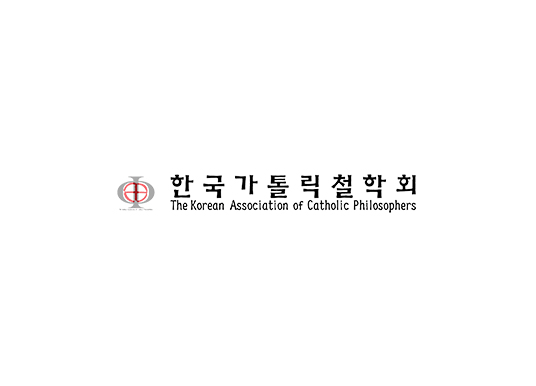J. G. 피히테의 신(神)개념과 의미-반성 -초월론적 반성에 근거한 철학적 종교론의 가능성에 관하여-
J.G. Fichte’s Concept of God and Meaning-Reflection -On the Possibility of Philosophical Theology Grounded in Transcendental Reflection-
김승욱
가톨릭관동대학교
가톨릭철학
2023, vol., no.41, pp. 49-80 (32 pages)
한국가톨릭철학회
1. 주제 선정
2. 초월론적 반성과 도덕적 세계질서로서 신
3. 반성의 엄격하고 근본적인 수행: 칸트의 신개념을 넘어
4. 의미–반성의 맥락에서 도덕적 세계질서로서 신개념의 해석
5. 해석과 평가
초록
본 연구의 목적은 피히테가 연루된 무신론 논쟁의 중심에 있던그의 신개념(Gottesbegriff)을 의미-반성(Sinn-Reflexion)의 맥락에서 해석하고, 이를 근거로 피히테의 종교철학이 엄밀하고 근본적인 초월론적 반성을 통해 구상된 철학적 종교론(philosophische Religionslehre)임을 밝히는 것이다.
피히테의 종교철학은 분명 칸트 종교철학의 연장선 위에 있다. 그러나 차이는 엄연하다. 본 연구에서는 그 차이를 의미-반성의 맥락에서 해석한다. 이러한 해석은 종교철학 영역에서 칸트와 피히테가 각각 착수한 초월론적 반성과 그로부터 비롯된 신개념의 차이를 선명하게 보여준다. 피히테의 신개념은 도덕법칙과 그것의의미있음에 대한 엄격하고 보다 근본적인 초월론적 반성의 결과이다. 이 반성은 이성의 선험적 원칙을 따르는데, 본 연구에서는 그것을 ‘의미의 원칙’으로 해석하였다. 피히테가 칸트를 넘어서는 것은 이 원칙을 -비록 명명하지는 않지만- 반성의 과정에서 온전하게실행했다는 것이다. 초월론적 의미-반성, 즉 의미의 정초 맥락에서철학은 저 근원적인 도덕적 명증성의 근거이자 의미의 보증자로서신의 현존을 제시한다. 그러므로 피히테가 지식의 체계로부터 신개념을 연역할 때, 그것은 무신론의 기획이라 할 수 없다. 오히려그의 구상은 현대 가톨릭 기초신학에 중대한 영향을 미쳤다.
The purpose of this study is to interpret Fichte’s concept of God (Gottesbegriff), which was at the center of the atheism debate he was involved in, within the context of meaning-reflection (Sinn-Reflexion). Based on this interpretation, it aims to elucidate that Fichte’s philosophy of religion, rooted in rigorous and radical transcendental reflection, is a philosophical theology (philosophische Religionslehre).
Fichte’s philosophy of religion is clearly in line with Kant’s philosophy of religion, but there are distinct differences. In this study, we seek to interpret these differences within the context of meaning-reflection. Such an interpretation in the field of philosophy of religion highlights the differences in the transcendental reflection undertaken by Kant and Fichte respectively and the resulting distinctions in their concepts of God. Fichte’s concept of God is the outcome of a rigorous and more radical transcendental reflection on the moral law and its meaningfulness. This reflection follows the a priori principles of reason, which we interpret as the “principle of meaning” in this study. Fichte, although not explicitly naming it, fully executes this principle in the process of reflection, surpassing Kant. In the context of transcendental meaning-reflection, philosophy serves the existence of God as the foundation for profound moral certainty. Consequently, when Fichte deduces his concept of God from the system of Wissen, it cannot be considered an atheistic endeavor. Instead, his concept had a significant influence on contemporary Catholic fundamental theology.

